Market Making Software: A Comprehensive Guide
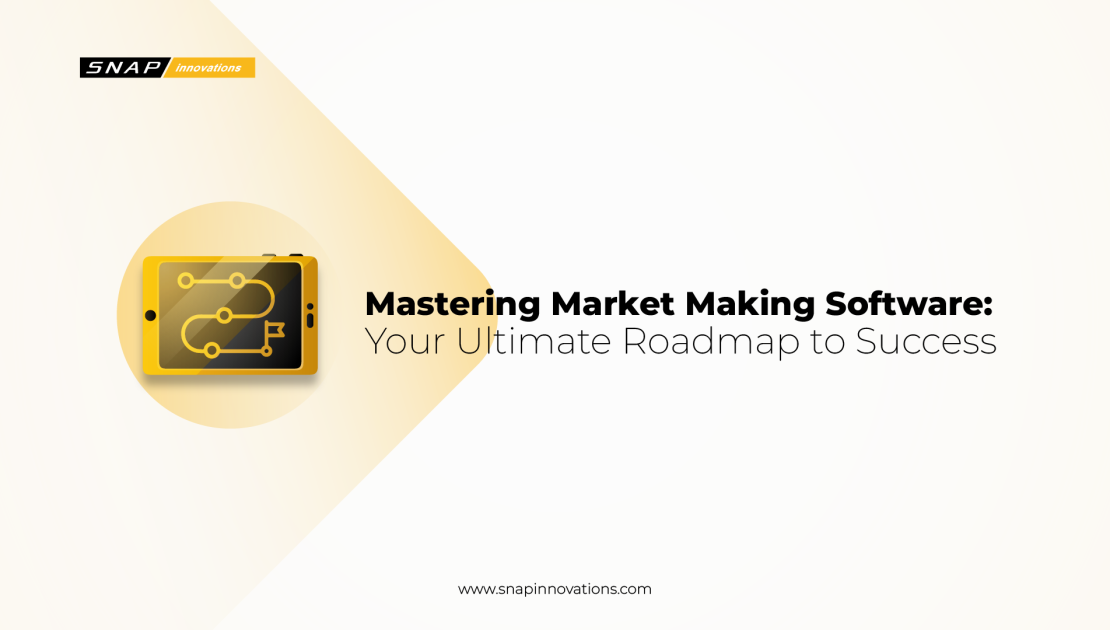
In the fast-paced and ever-evolving realm of financial trading, staying ahead of the curve is imperative. Traders constantly grapple with the challenges posed by volatile markets, intricate financial instruments, and the need to execute orders swiftly and accurately. In this demanding environment, market making software emerges as a revolutionary and indispensable tool.
This article is dedicated to unraveling the exceptional capabilities and advantages that advanced market making software brings to the table. Whether you’re an experienced trader seeking an edge or someone looking to enter the world of financial markets, understanding the nuances of this technology is crucial for making informed decisions.
In the following sections, we will delve deep into the world of market making software, exploring its intricate mechanics, cutting-edge features, and the profound impact it has on the financial landscape. By the time you finish reading, you will have gained valuable insights that can empower you to navigate the complex world of trading with precision and confidence. So, let’s embark on this journey of discovery and uncover the transformative potential of market making software.
What is Market Making Software?
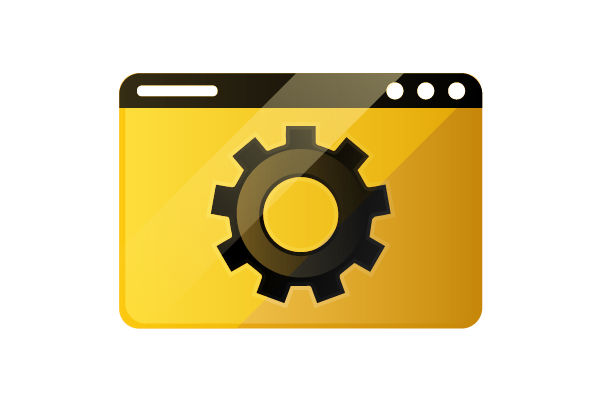 Market making software represents a sophisticated technological marvel meticulously engineered to serve a pivotal role in the intricate world of financial markets. At its core, this specialized tool is a veritable linchpin that enhances the liquidity dynamics within these markets. Its primary function revolves around the seamless provision of liquidity, a vital lifeblood that keeps financial markets vibrant and operational.
Market making software represents a sophisticated technological marvel meticulously engineered to serve a pivotal role in the intricate world of financial markets. At its core, this specialized tool is a veritable linchpin that enhances the liquidity dynamics within these markets. Its primary function revolves around the seamless provision of liquidity, a vital lifeblood that keeps financial markets vibrant and operational.
The modus operandi of market making software is nothing short of fascinating. It operates tirelessly, engaging in a perpetual dance of buying and selling various financial instruments, from stocks and bonds to derivatives and cryptocurrencies. This perpetual trading activity forms the foundation of its purpose: to ensure that there is always a willing buyer and seller available in the market for a given asset.
Also Read: AI Development: The New Era of Technological Innovation
In essence, market making software acts as a facilitator, bridging the gap between buyers and sellers by consistently quoting bid and ask prices. These quotes reflect the software’s willingness to buy an asset at a slightly lower price than the current market price (the bid) and its readiness to sell the same asset at a slightly higher price (the ask). This bid-ask spread serves as the software’s compensation for the risk it assumes in providing liquidity.
This tool is especially cherished by institutional traders and market makers who operate in high-stakes environments where every fraction of a second counts. Its ability to maintain a continuous presence in the market, offering both buy and sell options, ensures that trading operations remain smooth and unhindered. As a result, market making software becomes an indispensable asset in the arsenal of these traders, granting them a competitive edge in the relentless race to execute orders with precision and alacrity.
Benefits of Using Market Making Software
- Enhanced Liquidity: The primary benefit of market making software is its capability to enhance liquidity in the financial markets. It allows for seamless transactions, making it easier for traders and investors to buy or sell assets without causing significant price fluctuations.
- Speed and Efficiency: With high-frequency trading becoming the norm, the need for speed is paramount. Market making software excels in executing orders at unprecedented speeds, which is crucial for capturing the best possible prices in fluctuating markets.
- Risk Management: Implementing effective risk management strategies is straightforward with market making software. It enables traders to set predetermined rules and parameters, effectively minimizing losses while maximizing profits.
- User-Friendly Interface: Many market making software solutions come with intuitive interfaces, making it accessible for both seasoned traders and beginners. With easy navigation and customizable features, users can tailor the software to meet their unique trading needs.
How Does Market Making Software Work?
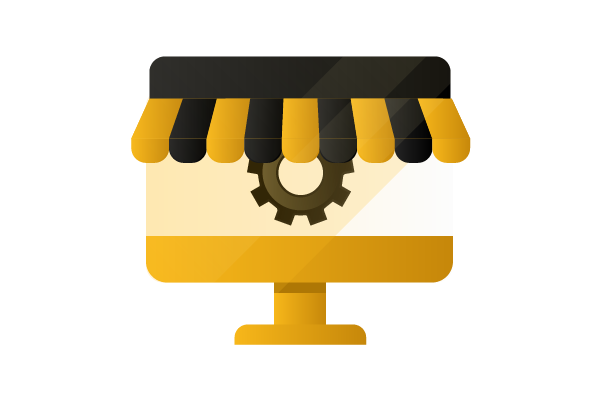 The inner workings of market making software are a fascinating blend of cutting-edge technology and financial acumen. At its core, this software relies on intricate algorithms that process vast amounts of data, continuously monitoring and assessing market conditions in real-time. These algorithms are finely tuned to swiftly recognize and capitalize on trading opportunities, all while adhering to a set of predefined criteria and parameters established by the user.
The inner workings of market making software are a fascinating blend of cutting-edge technology and financial acumen. At its core, this software relies on intricate algorithms that process vast amounts of data, continuously monitoring and assessing market conditions in real-time. These algorithms are finely tuned to swiftly recognize and capitalize on trading opportunities, all while adhering to a set of predefined criteria and parameters established by the user.
The process begins with the software’s vigilant data analysis. It constantly scans various financial markets and instruments, including stocks, bonds, commodities, and cryptocurrencies, among others. This real-time data includes information on asset prices, trading volumes, order book depth, and other critical market indicators. The software interprets this data through its algorithms, searching for patterns, anomalies, or arbitrage opportunities that align with the user’s specified criteria.
When a suitable trading opportunity is identified, the software springs into action. It executes orders with remarkable efficiency, swiftly entering the market to either buy or sell the specified assets. Importantly, it does so with precision, aiming to profit from the bid-ask spread while ensuring that the market remains well-liquified. The bid-ask spread, which represents the difference between the buying (bid) and selling (ask) prices, serves as the software’s compensation for providing liquidity.
One of the key advantages of market making software is its automation. It operates 24/7 without fatigue or emotions, diligently adhering to the user’s risk tolerance and trading strategy. This automation minimizes the potential for human error and allows for rapid responses to changing market conditions. Users can fine-tune the software’s parameters to align with their specific objectives, whether it’s capturing small, frequent profits, or maintaining a more conservative approach.
Risk management is a paramount concern in the operation of market making software. Users can configure the software to limit exposure and losses, ensuring that it operates within predefined risk thresholds. This dynamic risk management capability enhances the software’s appeal to traders who prioritize capital preservation alongside profit generation.
Key Features of Market Making Software
- Algorithmic Trading: Market making software is built upon advanced algorithms that facilitate automated trading. These algorithms are capable of analyzing vast amounts of data instantaneously, making swift trading decisions that align with the user’s objectives.
- Security Measures: Security is a top priority for market making software developers. With robust encryption and other security protocols in place, users can trade with confidence, knowing that their data and assets are protected from unauthorized access.
- Customization Options: The software offers various customization options, allowing users to adjust its functionality to suit their trading style and preferences. From setting risk parameters to choosing specific assets for trading, users have control over their trading environment.
- Support and Updates: Reliable market making software providers offer continuous support and regular updates to their products. This ensures that users have access to the latest features and that the software performs optimally at all times.
Who Can Benefit from Market Making Software?
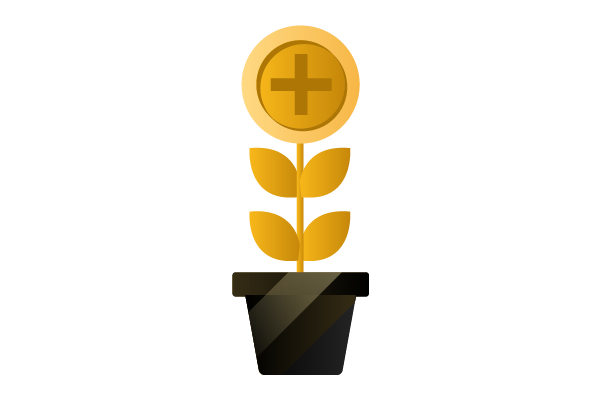 Market making software is a versatile and indispensable tool that offers substantial benefits to a wide spectrum of market participants. Its adaptability and diverse applications cater to the needs of individual traders, financial institutions, and market-making firms alike, making it a valuable asset across various trading activities.
Market making software is a versatile and indispensable tool that offers substantial benefits to a wide spectrum of market participants. Its adaptability and diverse applications cater to the needs of individual traders, financial institutions, and market-making firms alike, making it a valuable asset across various trading activities.
1. Individual Traders
For individual traders, market making software can level the playing field in the highly competitive world of financial markets. It provides access to advanced trading strategies and algorithms that were traditionally the domain of institutional players.
The user-friendly interface of many market making software solutions ensures that even traders with limited experience can harness its power to execute orders with precision and efficiency. Whether you are a retail trader looking to optimize your trading strategy or a high-frequency trader seeking an edge, market making software can be a game-changer.
2. Financial Institutions
Financial institutions, including banks, investment firms, and hedge funds, benefit immensely from the implementation of market making software. These institutions often deal with large volumes of trades and complex portfolios. The software’s automation and real-time analysis capabilities enable them to manage these operations more effectively, reducing human error and enhancing overall efficiency.
Furthermore, market making software can be customized to align with the institution’s specific risk tolerance and trading objectives, allowing for a more tailored approach to trading activities.
3. Market-Making Firms
Market-making firms, which specialize in providing liquidity to financial markets, find market making software to be an indispensable asset. It forms the backbone of their operations, enabling them to continuously quote bid and ask prices, thereby ensuring liquidity and orderly trading.
The software’s ability to adjust to changing market conditions in real-time is invaluable for these firms, as it allows them to remain competitive in fast-paced markets while managing risk effectively.
Choosing the Right Market Making Software
Choosing the right market making software is a pivotal decision for traders and institutions seeking to optimize their trading operations. The selection process involves a multifaceted evaluation of several critical factors, each of which plays a significant role in determining the software’s suitability for specific trading objectives. Here’s an in-depth exploration of the key considerations when making this important choice:
- Trading Strategy Alignment: The first and foremost consideration is how well the market making software aligns with your trading strategy. Different software solutions cater to various trading approaches, such as high-frequency trading, arbitrage, or traditional market making. Ensure that the software supports the strategies you intend to employ, offering the necessary features and customization options.
- Risk Tolerance and Customizability: Assess your risk tolerance and the degree to which you can customize the software to match your risk parameters. A robust market making software should allow you to set risk limits and implement risk management strategies that align with your comfort level. This flexibility is crucial for preserving capital in the often volatile world of trading.
- Asset Compatibility: Consider the range of assets you intend to trade. Whether it’s equities, options, cryptocurrencies, or a mix of various financial instruments, ensure that the software is compatible with your preferred asset classes. Some market making software solutions are more versatile in this regard, supporting a wide array of asset types.
- Reliability and Uptime: The reliability of the software is paramount. Downtime can be costly, so choose a software solution with a proven track record of stability and uptime. Look for reviews and testimonials from other users to gauge its reliability in real-world trading scenarios.
- Security Features: Security is non-negotiable in the world of finance. Ensure that the software provides robust security features to protect your trading accounts and sensitive data. Look for features such as encryption, two-factor authentication, and compliance with industry standards.
- Customer Support and Training: Consider the level of customer support and training offered by the software developer. Access to responsive customer support can be invaluable when you encounter issues or have questions about the software’s functionality. Training materials, webinars, and user communities can also aid in mastering the software effectively.
- Cost and Pricing Model: Evaluate the cost structure and pricing model of the market making software. Some options may charge a one-time fee, while others operate on a subscription basis. Understand the pricing implications and ensure that it fits within your budget, taking into account any potential scalability requirements.
- Trial Period: Whenever possible, take advantage of trial periods or demo versions offered by the software developer. This allows you to test the software in real market conditions, assess its suitability for your needs, and gain firsthand experience of its capabilities.
Future of Market Making Software
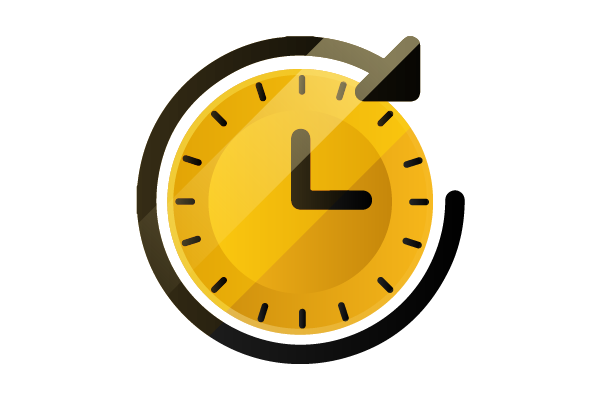 The future of market making software looks promising, with continuous developments and improvements on the horizon. As financial markets evolve, so does the need for advanced tools that can keep up with the changing landscape. Market making software is poised to become even more sophisticated, incorporating cutting-edge technologies like artificial intelligence and machine learning to offer unparalleled trading support.
The future of market making software looks promising, with continuous developments and improvements on the horizon. As financial markets evolve, so does the need for advanced tools that can keep up with the changing landscape. Market making software is poised to become even more sophisticated, incorporating cutting-edge technologies like artificial intelligence and machine learning to offer unparalleled trading support.
Read More: Spread Trader: Exploring the Art of Strategic Trading
In the coming years, integration capabilities of market making software will significantly expand, fostering seamless collaboration between various financial platforms and systems. With the incorporation of blockchain technology, these applications not only promise enhanced security and transparency but also facilitate faster and more efficient transaction processing.
Furthermore, the adoption of cloud computing allows for scalability and flexibility, accommodating the demands of both small-scale traders and large financial institutions. Through these technological advancements, market making software is expected to offer a more intuitive and user-friendly interface, simplifying the trading process for professionals and providing easier entry points for novice traders. The convergence of AI, blockchain, and cloud technologies will inevitably revolutionize the way market making functions, paving the way for a future that is more accessible, secure, and efficient for all market participants.
Conclusion
Market making software is indeed a game-changer in the realm of financial trading. Its myriad of features and benefits not only streamline trading operations but also open up opportunities for traders to engage in the market more effectively and profitably. As this technology continues to advance, the future of trading looks bright, with market making software leading the way towards a more accessible and efficient financial marketplace.
